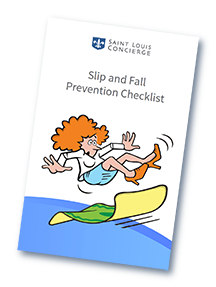Recent trends, crime experts say, show scammers are trying to drain your bank account. According to the National Crime Prevention Council, two-thirds of America’s 40 million seniors believe they’ll be victims of a crime. Many seniors admit they’re unwilling to leave their homes after dark, while others say they feel isolated due to their fears, the NCPC says. Here are some tips to keep yourself safe in your home and community:
FBI experts say that if you were born in the 1930s, ’40s or ’50s, you were generally raised to be trusting and unsuspecting. However, the world of today is a whole different place. Teach yourself that it’s not only OK to say ‘no’ and hang up the phone on callers you don’t know, it’s actually in your best interest to do so.
You also shouldn’t answer the door to strangers, nor buy anything that’s being sold door to door.
If you receive a call about a product or service in which you might be interested, make sure you ask that information be sent in writing, including details about cost. Scammers typically use high-pressure tactics, such as saying a special price is good only for one day, but don’t fall for it. That’s a huge red flag, according to experts at the National Consumers League.
If the caller tries to stonewall a request for written information, hang up. Legitimate charitable groups or businesses don’t hesitate to send detailed written information to a potential donor or consumer when asked to do so.
Attorneys general from around the country advise residents to be aware of the ‘grandparent’ scam, where a caller claims to be a grandchild and asks for money to get out of some fictitious jam.
Minnesota AG Lori Swanson says callers pose as grandchildren by using a variation of “Hi, Grandma/Grandpa. Do you know who this is?” When the grandparent responds with a name, Swanson says, the scammer then plays off that info, claiming to be in need of bail money or funds for some other purpose, and asks the victim to wire cash to a location.
The FBI says the calls often come late at night or early in the morning when recipients aren’t thinking clearly. Once the victim wires the money, authorities can do little to reclaim it.
To allay concerns that a real grandchild might be in trouble, the FBI urges folks to hang up and call the grandchild directly, or call their parent to confirm help is needed.
Never give out personal financial information over the phone or online to unknown or untrusted sources or sites.
According to a report by the U.S. Government Accountability Office, financial exploitation cost seniors $2.9 billion in 2010. Thieves stole their money directly through inflated charges for home repair, or through identity theft by establishing unauthorized lines of credit.
If you don’t know how to check your credit, start by going to a credit reporting site such as annualcreditreport.com.
If you believe you’ve been scammed, call the police immediately. The FBI experts say criminals know seniors are less likely to report crimes, either because they don’t know who to report the crime to or they’re embarrassed that they got duped.
Sources: FBI, U.S. GAO, Robert Siciliano, National Consumers League, National Crime Prevention Council


Avoiding a Fall is the Best Way to Stay Safe, Secure and Independent. Falls are the second leading cause of accidental death in the U.S. To help maintain your independence, it’s important to protect yourself from falls.
Review this checklist for ways you can prevent falls. Check off each compliant item in your home. Items that get no check mark represent a potential hazard. Saint Louis Concierge would be happy to assist you. Call us to arrange a complete Safety Check of your home. Download a free copy of our "Slip and Fall Prevention Checklist".
